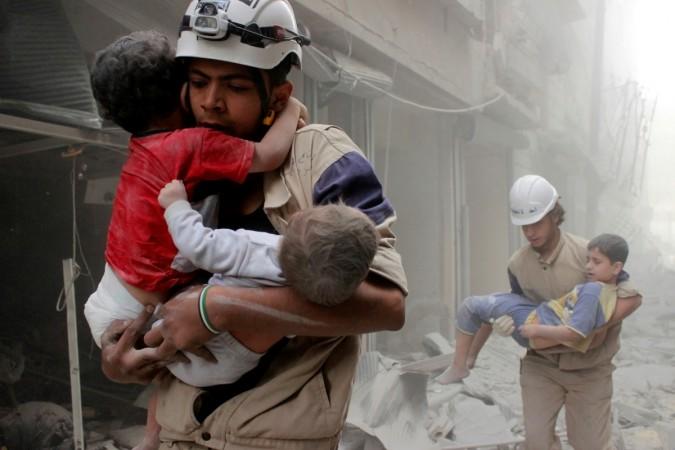
UN Under-Secretary-General and Emergency Relief Coordinator Stephen O'Brien had recently said in an address to the world body that the situation in Aleppo in Syria is so bad that it has the potential to turn into "one giant graveyard." It seems his words are coming true, with Aleppo residents burying their dead only at night, while the bodies lay strewn across the city during the day.
At least 30,000 people have already been displaced in Aleppo, where the rebels are fighting the Syrian regime forces in an effort to topple President Bashar al-Assad, while they are both fighting the Islamic State group — also known as Islamic State of Iraq and Syria (ISIS) or Islamic State of Iraq and the Levant (ISIL) — which is looking to keep its hold intact in the country after having nearly lost Mosul in Iraq.
Losing count of the dead
Now, according to a Toronto Sun report, the deceased in Aleppo are being buried only at night because it is too dangerous for the living to venture outside during daylight hours. The report says, "...When night falls, an imam slips out to the latest mass grave, conducting the briskest of rites and thanking God that the skies have stayed silent."
And there is so much chaos around that everybody — including the United Nations — seems to have lost count. "We can't keep up," White Helmets civil defence group volunteer Ibrahim Abu Laith was quoted as saying in the report. He added: "We're having to choose who we find and who we don't."
Difficulty in locating people
With airstrikes becoming the norm rather than the exception, and their bombs having reduced most of Aleppo to rubble, the sound of their approach often puts an end to the efforts of groups like White Helmets to reach out into the city with aid. "When you hear someone alive but reach them dead, that is the hardest part," said Laith.
Equally bad are the prospects that scores — if not hundreds — of bodies are lying buried under the rubble in Aleppo, with little being done to retrieve them and give them a proper burial. But this lack of effort can be understood when juxtaposed with the current situation in Syria, where circumstances have been described as a "living nightmare" and where children have been forced to play in underground tunnels and spaces.

















